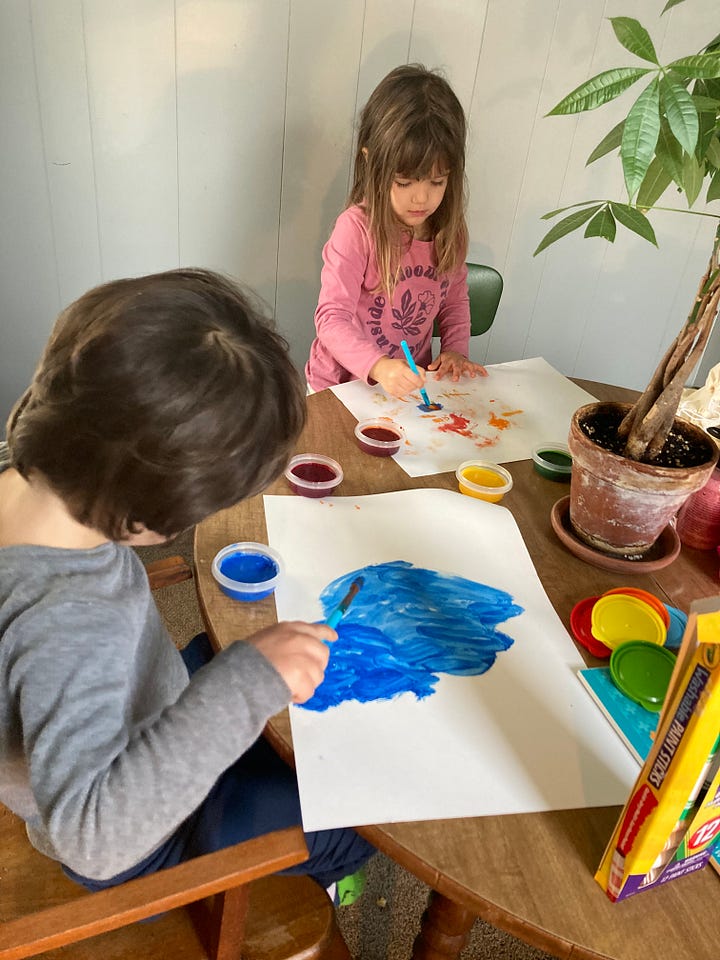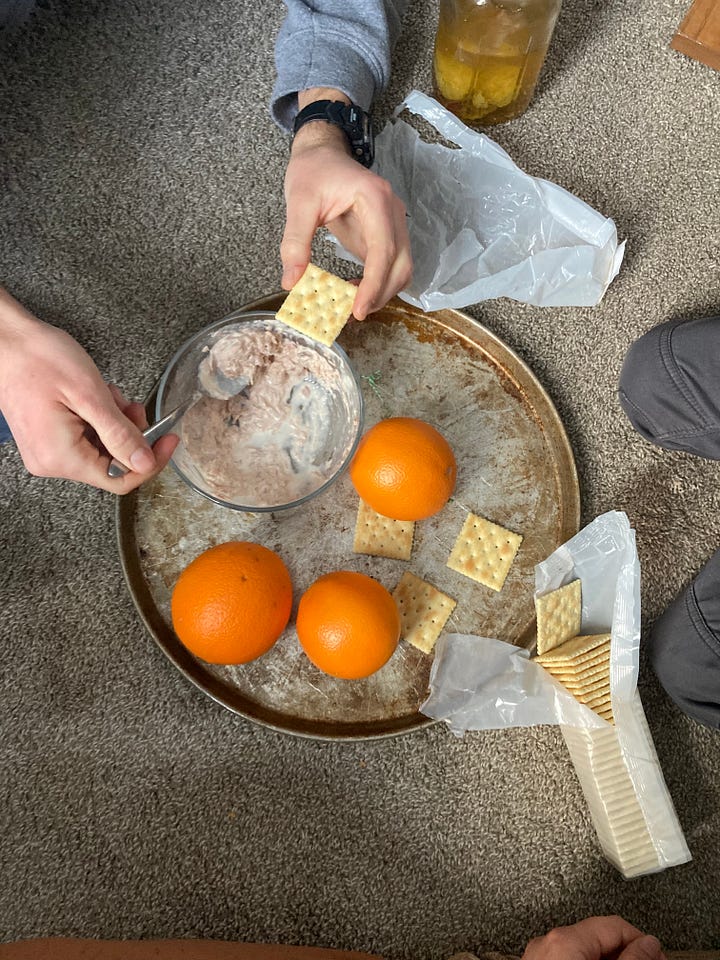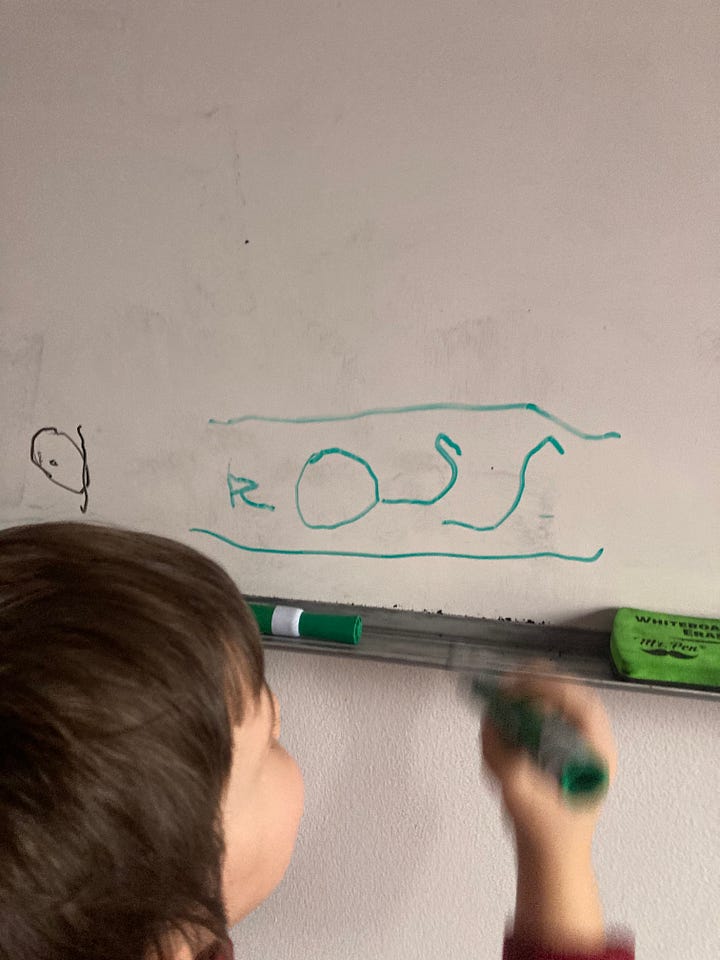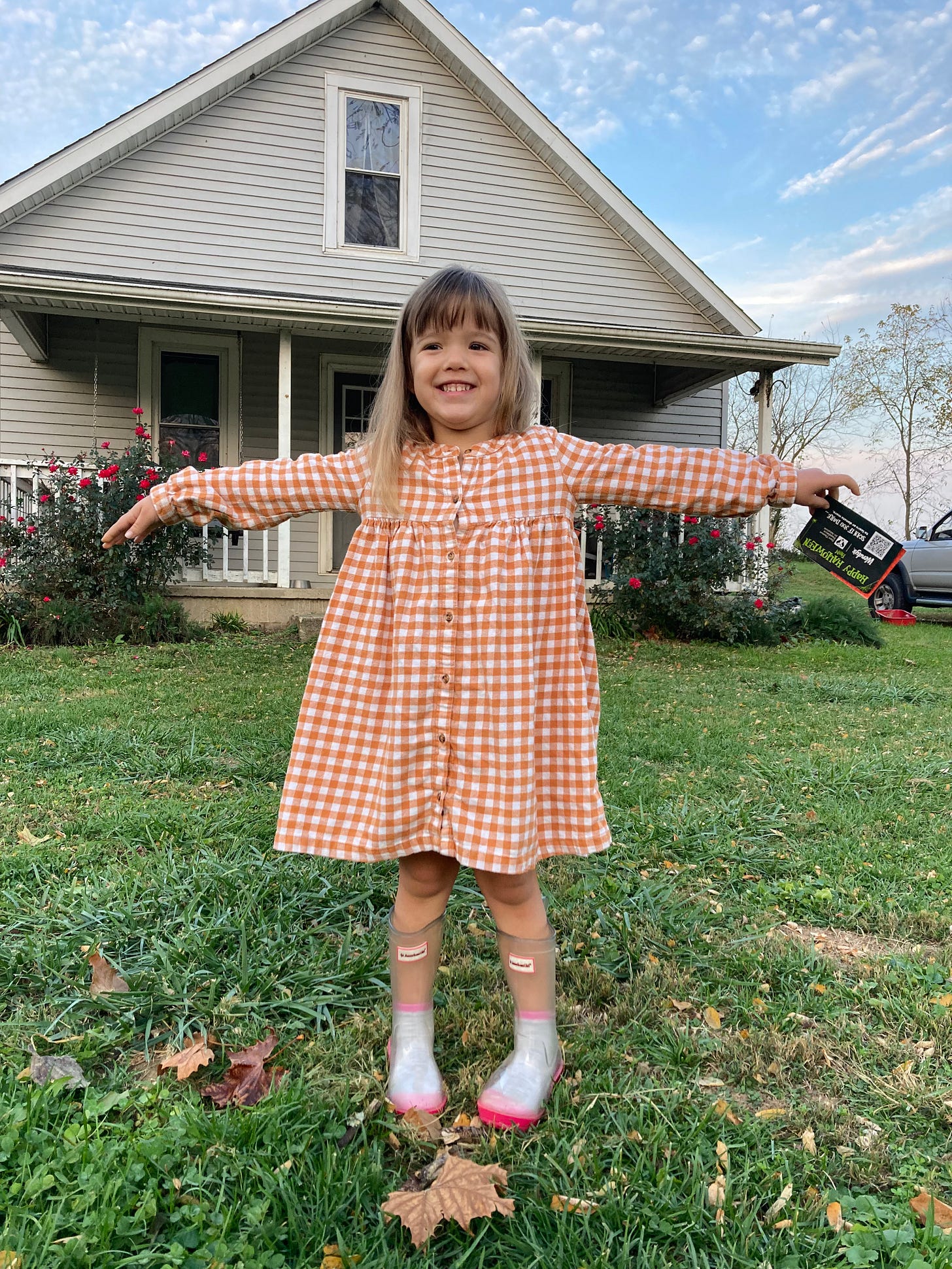I imagine your faces—even those of you who just walked in—looking to me at the top of a long wooden table, every chair and every glass a bit different from the next because thrifted. And no charcuterie boards here; at every fifth seat or so is a Guinness-brined turkey or chicken, slow roasted over my dad’s grill. Between the poultry, my mama and I have baked and placed yeast rolls and sourdough rolls in baskets. From the Scott garden, we pile vegetables—warm and savory, sweet and chilled—on every plate.
Everyone is reclined at table, as they used to say, waiting for me to say:
We are buying a house!
We are growing home.
As my Canadian friend Melanie reminded me this morning, we’re eighteen days out from our closing date. Right now, I am sitting in a draughty farmhouse, which, the day we looked at our almost-house, had frost on the interior walls. (The outdoor temperatures were extremely cold that day.) I am sitting alone. I am waiting. But sated—that part of me that always needs to know what’s going on, what’s next, so.
The parts of me that have been bruised and healing—the parts of me that have been growing, are blooming.
Internal spring.
Our house, our almost-home
is perfect. The main features of the living room are a picture window and built-in bookshelf. There’s a basement with a work station for all my sewing, and a long wall with a storage bench for Jay’s musical equipment. It’s in the city but on a quarter acre—plenty of room for an urban garden and dwarf fruit trees and two or three chickens and a greenhouse for growing greens in winter. A covered patio and Tonka digging pit already await us.
Not what we wanted, but just what we need.
Forever for now.
How can this be? How can the Lord be so good to me?
I’ve been waiting for an end to the hard years, the end of our suffering—or, at least, the particular suffering of post-trauma, our variety of housing insecurity, and bad luck). Which makes me think of Zora Neale Hurston. In Their Eyes Were Watching God, a novel which follows a young woman through all her years, Hurston says:
“There are years that ask questions and years that answer.”
I’ve been waiting for answers. To close this painful part of our lives, and move on, toward fullness and abundance and security and healing and wholeness.
But now that I’m here, at the end of a road, I realize: The story isn’t over yet. I am still being written. This is not the end. I have so much hope.
I’m home. I’m already home.
Where do I live? If I had no address, as many people do not, I could nevertheless say that I lived in the same town as the lilies of the field, and the still waters.—Mary Oliver, from her poem, “Evidence”
When Jay shared our announcement in church on Sunday, he couldn’t help but also bring attention to the people suffering because they do not have a home. Like the refugees our government invited and has since left stranded. Or my Substack-friend Steve who is sifting through the ashes of his home in Southern California.
Or the unhoused individuals in my hometown. Recently, city council has sought to criminalize their bad luck.
That’s where I live. That’s the city in which I will take up residence again.
I who have been blessed with a home of my own—what can I do in the face of this suffering? I am pressed with speechlessness. I wander down other links. I scroll away.
What is there to say?
Incidentally, “homelessness” has been a recurring topic of discussion in my classroom this year. To my students, I have said, These problems, these people, are closer than you think. I have told them the stories of people I love, of neighbors and distant cousins who hurt because they do not have a home and are disparaged by those with whom they share a sidewalk.
And then, in a reflective assignment on repentance, one student realized I’ve gone on mission trips to other countries to help people in need while ignoring the people in my backyard. I am part of the problem. What I can do is smile when I pass someone on the street.
And I thought, Yes, this is it—and I think, Yes, this is it. We cannot solve the problems. I cannot solve Housing Insecurity. But I can share what I have. I can smile. We can smile at one another, and remind each other of the truth: We are neighbors. We share this sidewalk, this town, this county, this country, this earth. This is our home. We are home. We’re already home. We live among the lilies, beside the still waters. This is not the end.










I understand Jay’s quandary. I’m feeling it as I celebrate my last chemo, yet there are others who are dying from this awful disease.
I’m so excited for you! Can’t wait to see how you make your new house a home.
Christianna somethings must be changing I’ve going from crying to smiling as I rejoice with you and consider us living in our town together. Love how you write!